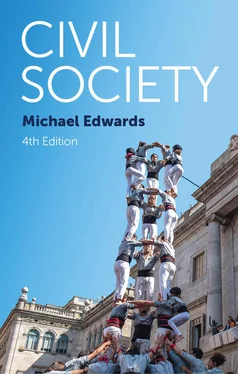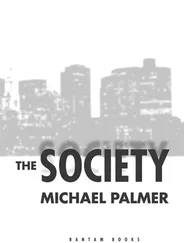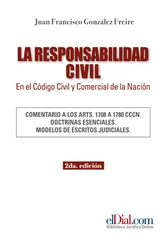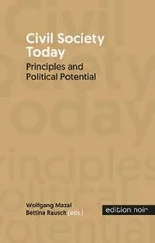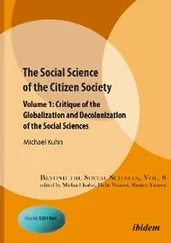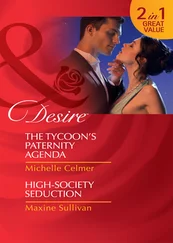Fortunately, we are blessed with a number of books that provide excellent and detailed accounts of the history of this idea. 2They show how civil society has been a point of reference for philosophers since antiquity in their struggle to understand the great issues of the day: the nature of the good society, the rights and responsibilities of citizens, the practice of politics and government, and, most especially, how to live together peacefully by reconciling our individual autonomy with our collective aspirations, balancing freedom and its boundaries, and marrying pluralism with conformity so that complex societies can function with both efficiency and justice. Such questions were difficult enough to resolve in small, homogeneous communities where face-to-face social interaction could build reciprocity and trust, but in an increasingly integrated world where none of these conditions apply they become hugely more demanding. Yet the discussions that took place after the fall of the Berlin Wall in 1989, or in the ferment of the Arab Spring during 2011 and 2012, or around the contentious mid-term congressional elections in the United States in 2018, would surely have been familiar to Aristotle, Hobbes, Ferguson, de Tocqueville, Gramsci, and others in the long roster of civil society thinkers that stretches back two thousand years. Though the profile of these ideas has certainly waxed and waned, arguing about civil society has always been a part of political and philosophical debate.
In classical thought, civil society and the state were seen as indistinguishable, with both referring to a type of political association that governed social conflict through the imposition of rules that restrained citizens from harming one another. Aristotle’s polis was an “association of associations” that enabled those individuals that qualified as citizens to share in the virtuous tasks of ruling and being ruled. In this sense, the state represented the “civil” form of society and “civility” described the requirements of good citizenship. Late medieval thought continued this tradition by equating civil society with the value of “politically organized commonwealths,” a type of civilization made possible because people lived in law-governed associations protected by the state. 3The alternative was social Darwinism – the “survival of the fittest.”
Between 1750 and 1850, ideas about civil society took a new and fundamental turn in response to a perceived crisis in the ruling social order. This crisis was motivated by the rise of the market economy and the increasing differentiation of interests it provoked, as “communities of strangers” replaced “communities of neighbors,” and by the breakdown of traditional paradigms of authority as a consequence of the French and American revolutions. In contrast to Aristotle, Plato, and Hobbes, the thinkers of the Enlightenment viewed civil society as a defense against unwarranted intrusions by the state on newly realized individual rights and freedoms, organized through the medium of voluntary associations. In this school of thought, civil society was a self-regulating universe of associations committed to the same ideals that needed to be protected in order to preserve its role in resisting despotism, a theme taken up by a host of thinkers including James Madison (in his Federalist Papers ) and Alexis de Tocqueville (probably the most famous civil society enthusiast of them all), and – much later in time – by the “small circles of freedom” that were formed by dissidents in Eastern Europe, by the writers who celebrated them in the West (such as Ernest Gellner), and by academics such as Robert Putnam who began to investigate the condition of associational life and its effects in Italy, the United States and elsewhere, spawning a whole new debate on “social capital” in the process. The dominant theme in this debate was the value of voluntary associations in curbing the power of centralizing institutions, protecting pluralism, and nurturing constructive social norms, especially “generalized trust and cooperation.” A highly articulated civil society with overlapping memberships was seen as the foundation of a stable democratic polity, a defense against domination by any particular group, and a barrier to anti-democratic forces. 4
Today, this “neo-Tocquevillian” tradition is particularly strong in the United States, where it dovetails naturally with preexisting traditions of self-governance, suspicions about the state, and concerns about public disengagement from politics and civic life, and is closely linked to other schools of thought such as communitarianism, localism, and the “liberal egalitarianism” of Michael Walzer, William Galston, and others. 5In contrast to classical liberals, liberal egalitarians recognize the debilitating effects of unequal access to resources and opportunities on the health and functioning of civil society. This is an important insight, and scholars have built on these ideas to construct a comprehensive critique of the neo-Tocquevillian tradition that focuses on the structural obstacles that prevent some groups from articulating their interests; the ethnocentrism or simple unreliability of assumptions about associations and their effects; and a failure to account for the impact of globalization, economic restructuring, political corruption, and power relations of different kinds. 6Even this critique, however, reaches back through history to connect with much earlier debates about the ideas that developed during the Enlightenment.
Hegel was the first of these early critics, focusing on the conflicts and inequalities that raged between different economic and political interests within civil society that required constant surveillance by the state in order for the “civil” to remain. This was a theme taken further by Karl Marx, who saw civil society as another vehicle for furthering the interests of the dominant class under capitalism, and therefore something that had to be “democratized” itself – and eventually abolished in order to make way for communism. 7But it was Antonio Gramsci – the person who “may be single-handedly responsible for the revival of the term civil society in the post-World War II period” 8– who was most responsible for a break with the liberal tradition. In Gramsci’s view, civil society was the site of rebellion against the orthodox as well as the construction of cultural and ideological hegemony, with both processes expressed through families, schools, universities and the media as well as voluntary associations since all these institutions are important in shaping the political dispositions of citizens. Hence civil society is just as much a site for politics and conflict as the formal political sphere, and it stands in an integral relationship to the state rather than being seen as separate. Although many later adherents to these ideas fail to credit Gramsci by name, his influence is clear for all to see in the vocabulary of radical social movements, activist intellectuals and progressive politicians. In the pages that follow, I have tried to weave these same themes of power and contention, inequality and conflict, throughout the three models of civil society that I analyze, providing at least a partial counterweight to the dominance of liberal thinking.
Philosophers in the United States such as John Dewey and Hannah Arendt took Gramsci’s ideas about civil society as an arena for contestation and developed around them a theory of the “public sphere” as an essential component of democracy. By the “public,” Dewey meant the shared experience of social and political life that underpinned public deliberation on the great questions of the day. Anything that eroded this public sphere – such as rising cultural and political polarization or the fracturing of the media into separate ideological communities – was to be resisted. Such ideas continue to resonate today among those committed to “deliberative” and “dialogic” democracy, but it was in Europe that the theory of the public sphere reached its highest levels of articulation through the work of Jürgen Habermas. Habermas combined the Marxist tradition that exposes domination in civil society with the liberal tradition that emphasizes its role in guarding personal autonomy, and he drew these different threads together through a series of theoretical constructs concerning “communicative action,” “discursive democracy,” and the “colonization of the life world.” For Habermas and other “critical theorists,” a healthy civil society is one “that is steered by its members through shared meanings” that are constructed democratically through the communications structures of the public sphere. 9
Читать дальше
